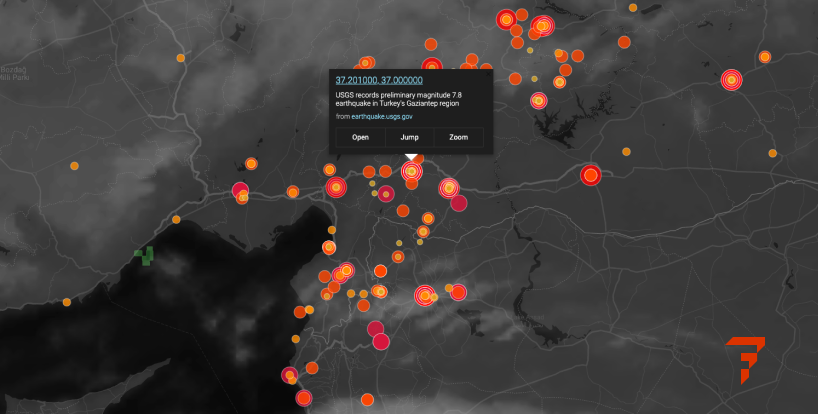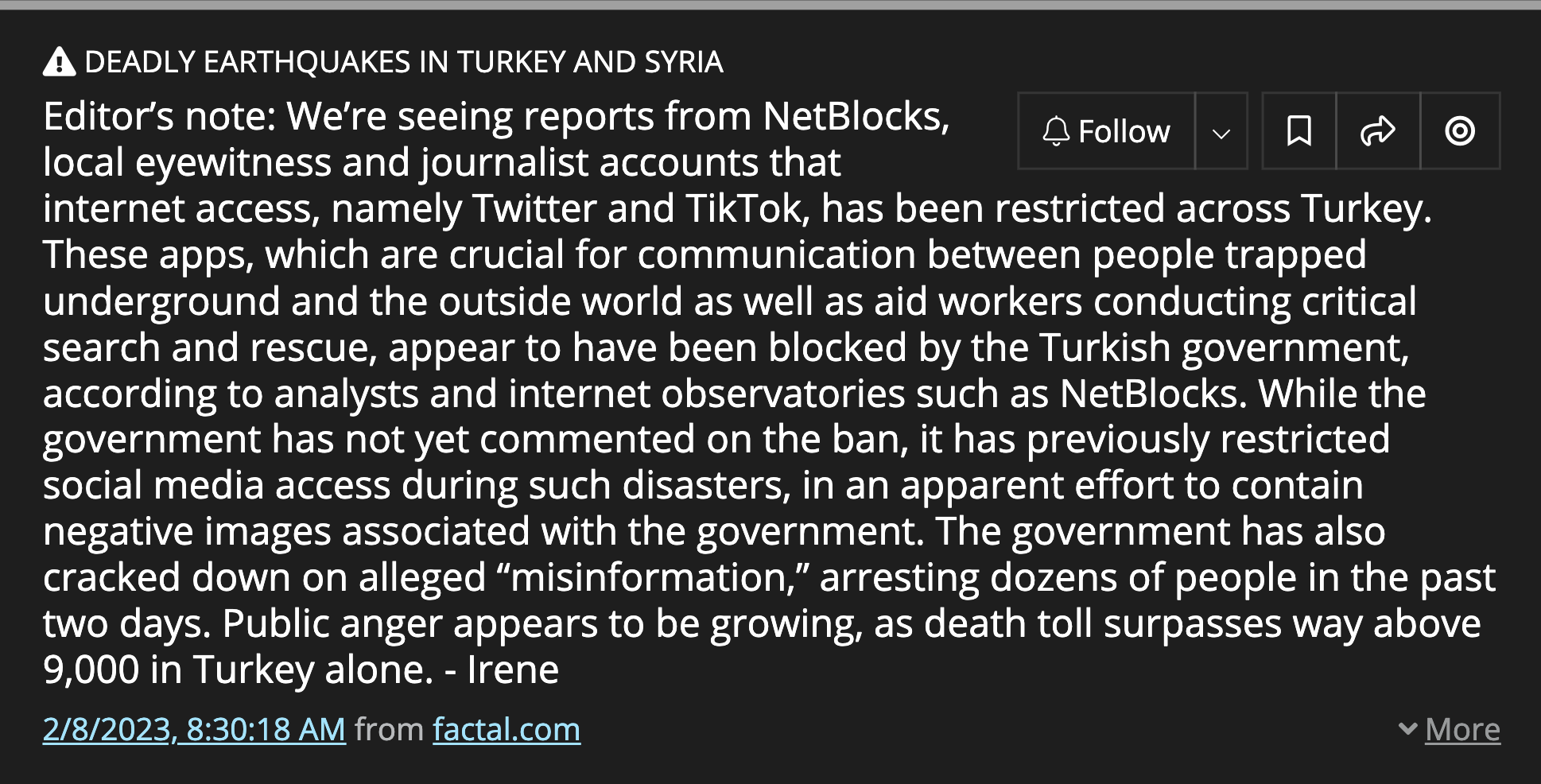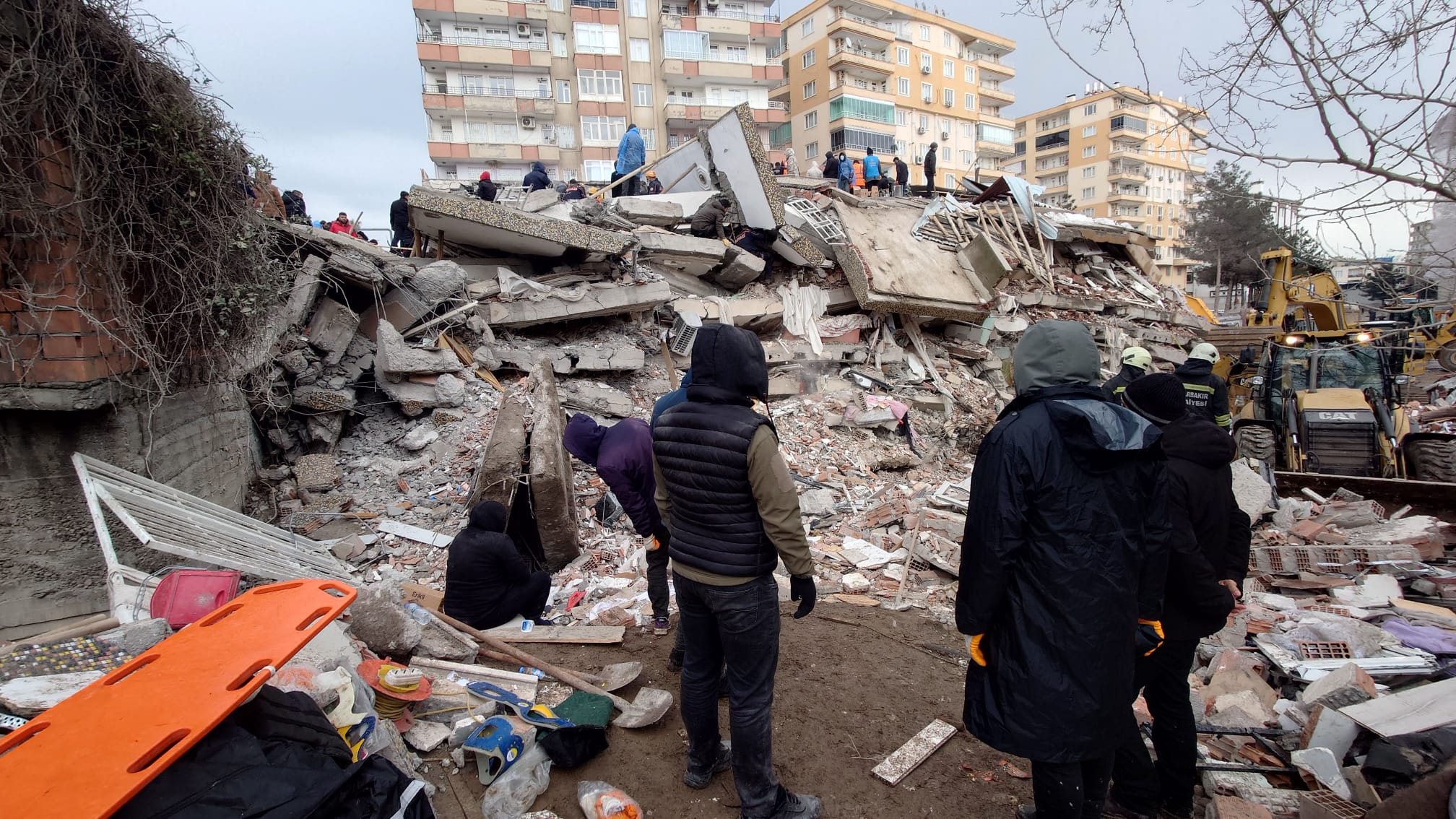One of the most devastating disasters in recent times, Turkey’s 7.8 earthquake leveled entire neighborhoods, killed thousands of people and played out live on social media. Panicked residents posted images of destruction across southern Turkey and northern Syria. Several hours later, a massive aftershock pushed over weakened buildings and was captured on live TV.
With several population centers nearby, Factal’s newsroom quickly realized the likely scale of destruction. Editors published a “major alert” to all members moments after the initial quake. Several minutes later, more editors joined the effort to identify, verify and geolocate damage reports. In the first 24 hours, editors published nearly 200 updates and more than a dozen major alerts – critical information for Factal’s NGO members responding to the region.

Senior editor Halima Mansoor, formerly with the Turkish news organization TRT World, was one of the Factal editors covering the early developments.
“People who were trapped under the debris were messaging their loved ones for help. And those messages were then circulating on social media by well-wishers or Turkish people just sending it to each other tagging the disaster agency to come step in and help these people, sending the addresses,” Mansoor said, adding that some survivors criticized the initial response.
Two days later, Twitter and Tiktok access disappeared in the country for several hours, cutting off a critical source of disaster information. “[They] appear to have been blocked by the Turkish government, according to analysts and internet observatories such as NetBlocks,” explained an editor’s note written by Factal editor Irene Villora (below). “While the government has not yet commented on the ban, it has previously restricted social media access during such disasters, in an apparent effort to contain negative images associated with the government.”

While the Tweets and TikToks from Turkey slowed, Factal editors were already wired into a wide spectrum of sources including Facebook, live blogs and live broadcasts. This multi-source approach – with an assist from AI – enables editors to quickly triangulate and verify information. Members are able to act quickly on verified details, share alerts directly with leadership and ask editors questions in a real-time chat.
More than 200 of Factal’s members are disaster response, humanitarian aid and human rights NGOs. Several organizations are either on the ground or headed to Turkey or Syria to help in the rescue, recovery and rebuilding efforts. These include the largest Red Cross organizations, International Rescue Committee, ADRA, CARE, World Central Kitchen, Direct Relief and Samaritan’s Purse. As part of Factal’s mission, NGO members get free unlimited service, including the Factal mobile app to keep track of incidents and new developments nearby.
As the earthquake falls out of the international headlines in the months to come, these NGOs will be hard at work on the long recovery ahead.
“One thing I can say for sure is that we will all be watching for how this earthquake impacts the Turkish elections, which are coming up soon,” said Mansoor, who answered questions on the Factal Forecast podcast. “In the past, in Turkey, a government’s response to a natural disaster would impact the outcome of the elections. So we all should watch for how the Turkish opposition leverages this and how the government responds to the people’s discontent.”
Top image: The wreckage of a collapsed building in Diyarbakır, Turkey. Source: VOA Turkey.
What is Factal?
Trusted by many of the world’s largest companies and nearly 300 humanitarian NGOs, Factal is a risk intelligence and collaboration platform that brings clarity to an increasingly noisy and uncertain world.
Powered by a hybrid of advanced AI and experienced journalists, Factal detects early signals, verifies critical details and assesses the potential impact at the speed of social media. From physical incidents and brand mentions to geopolitical developments, Factal offers the most trusted, real-time risk intelligence on the market.
Factal is also home to the largest security and safety collaboration network in the private sector. Members securely share information with other members in proximity to the same incident, both on Factal.com and the Factal app.
Learn more at Factal.com, and we’d love to hear from you.

